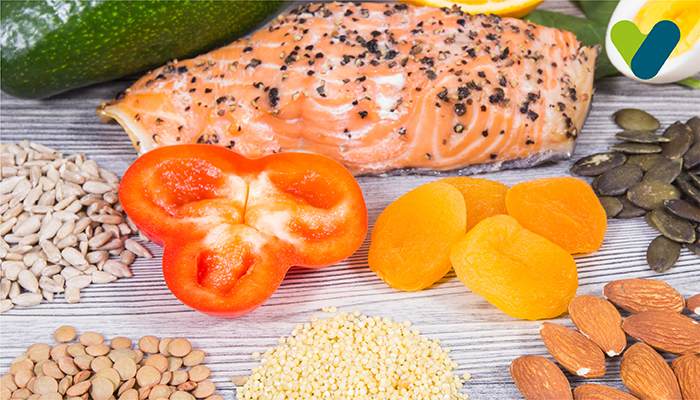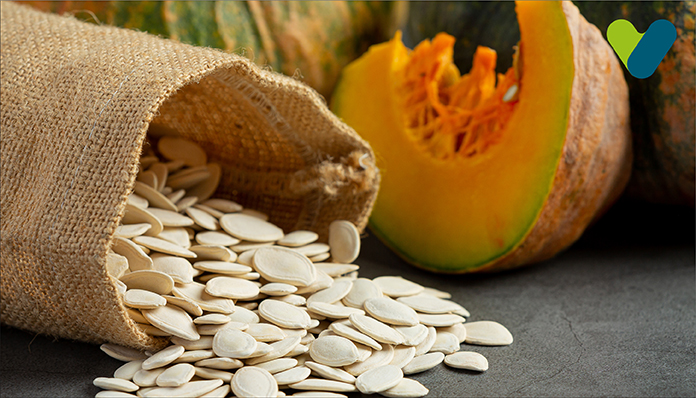Flaunting your hair every day with the perfect shine and volume is all that you need to look your best. Tresses are not only the centric glamour of all your looks but they are also an important part of your body that you need to take proper care of. With the rising pollution and health-related issues, complaints of hair loss are also increasing. Several vitamins hold the core of your hair and when this vitamin content decreases in your body, hair starts to weaken. There are several hair treatments that you can opt for. But when talking of natural and beautiful, vitamin treatment is probably what you need right now.
If you are one of those women who is looking for some solution to hair loss issues, mentioned below are a few vitamins that you must consider in this context. Although there are not many research claims that prove the effectiveness of vitamin intake for hair growth, they might be effective for you as several thousands of people have believed in these remedies.
Let’s have a look at all the important vitamins for hair growth in women
- Vitamin-A: Hair is probably the fastest-growing tissue of the human body. And like every other tissue in your body, the hair also requires an ample amount of Vitamin A to function and grow properly. It is believed that Vitamin A helps the skin in making sebum, which keeps the scalp moist and makes the hair healthy. However, both too high or too low consumption of Vitamin A can prove to be harmful and cause hair loss. It is thus suggested that you consult your nutritionist/ doctor before you start taking too much of it.
- Vitamin B: Biotin is among the most essential vitamins needed for hair growth. If your body shows a deficiency of this vitamin then it can probably prove to be very effective. Vitamin B produces red blood cells that are responsible for supplying oxygen and nutrients to the body and hair follicles. This is the reason it is highly advised to people with hair loss problems. However, research is still going on to prove its effectiveness.
- Vitamin C: Collagen is a vital part of the structure of hair, which is basically a protein that is created by Vitamin C. Vitamin C plays a vital role in maintaining the colour and strength of your hair. In case there is a deficiency of vitamin C in your body, your hair strands may start to age. To avoid these issues and give your hair the care they need, you must try by providing them with the right amount of vitamin C. Vitamin C also promotes the absorption of iron in the body, which also is an important element in the growth of hair.
- Vitamin D: Vitamin D, a very popular nutrient needed by the human body, helps in producing new hair follicles. It grows at the tiny and needle-sized pores on your scalp. One reason they stop producing new follicles is the deficiency of vitamin D. This is the reason why the intake of Vitamin B12 is expected to give out some positive results.
- Vitamin E: Oxidative stress is one reason why you must be facing hair loss problems. This is where vitamin E comes to the rescue as it is a good source of antioxidants.
Supplements Vitamins for Hair Growth: To Take or Not to Take?
There is no denying that the food you eat is the ideal source of vitamins. But in the fast-paced world of today, supplements seem to be a great option. They are not just easy to pop but are also very convenient. In case you have some deficiency, taking supplementary vitamins for healthy hair can be helpful, however, overdose can be harmful too. It is always advisable to contact your nutritionist before deciding what amount is needed by your particular body.These are some of the most sought-after vitamins that most people claim to have benefitted from. Apart from the aforementioned nutrients, several other nutrients and minerals have helped some people in enhancing their hair. The first on the list is iron which helps in the circulation of oxygen through red blood cells. Popular sources are eggs, red meat, lentils, spinach, etc. Then comes zinc that helps in the growth and repair of hair strands. Beef, spinach, oysters, pumpkin seeds, wheat germs are some of the food items that contain zinc.
Apart from vitamins for long hair protein is also highly needed for good hair because hair strands are mostly made of protein. To maintain your hair, the most beautiful attribute of your body, it is important to include these vitamins in your diet.


